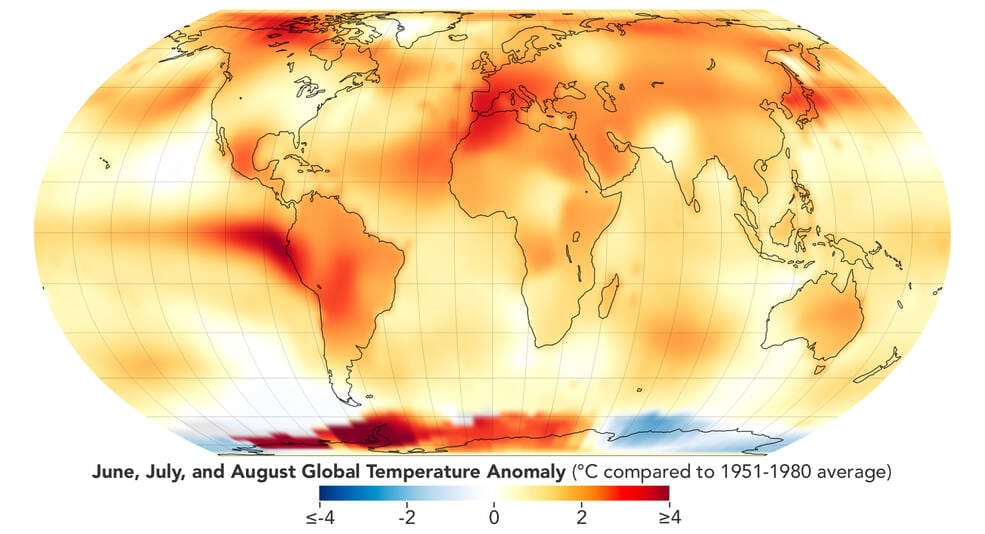WORLD: The summer of 2023 was Earth’s hottest since global records began in 1880, according to scientists at NASA’s Goddard Institute of Space Studies (GISS) in New York.
“Summer 2023’s record-setting temperatures aren’t just a set of numbers – they result in dire real-world consequences. From sweltering temperatures in Arizona and across the country to wildfires across Canada, and extreme flooding in Europe and Asia, extreme weather is threatening lives and livelihoods around the world,” said NASA Administrator Bill Nelson.
“The impacts of climate change are a threat to our planet and future generations, NASA said

This new record comes as exceptional heat swept across much of the world, exacerbating deadly wildfires in Canada and Hawaii, and searing heat waves in South America, Japan, Europe, and the U.S., while likely contributing to severe rainfall in Italy, Greece, and Central Europe.
Greenhouse gas emissions have been identified as a major driver behind climate change and the worldwide warming trend that resulted in such a sweltering summer. NOAA chief scientist Sarah Kapnick said, “Not only was last month the warmest August on record by quite a lot, but it was also the globe’s 45th-consecutive August and the 534th-consecutive month with temperatures above the 20th-century average. Global marine heat waves and a growing El Nino are driving additional warming this year, but as long as emissions continue driving a steady march of background warming, we expect further records to be broken in the years to come.”
The tropical Pacific Ocean experiences El Nino, a natural climate trend characterized by higher-than-normal sea surface temperatures. The phenomenon may have wide-ranging consequences, frequently bringing colder, wetter weather to the Southwest of the US and drought to nations in the western Pacific, such as Australia and Indonesia, according to NASA.
“Unfortunately, climate change is happening. Things that we said would come to pass are coming to pass. And it will get worse if we continue to emit carbon dioxide and other greenhouse gases into our atmosphere,” Gavin Schmidt, a climate scientist with the Space Agency stated.

